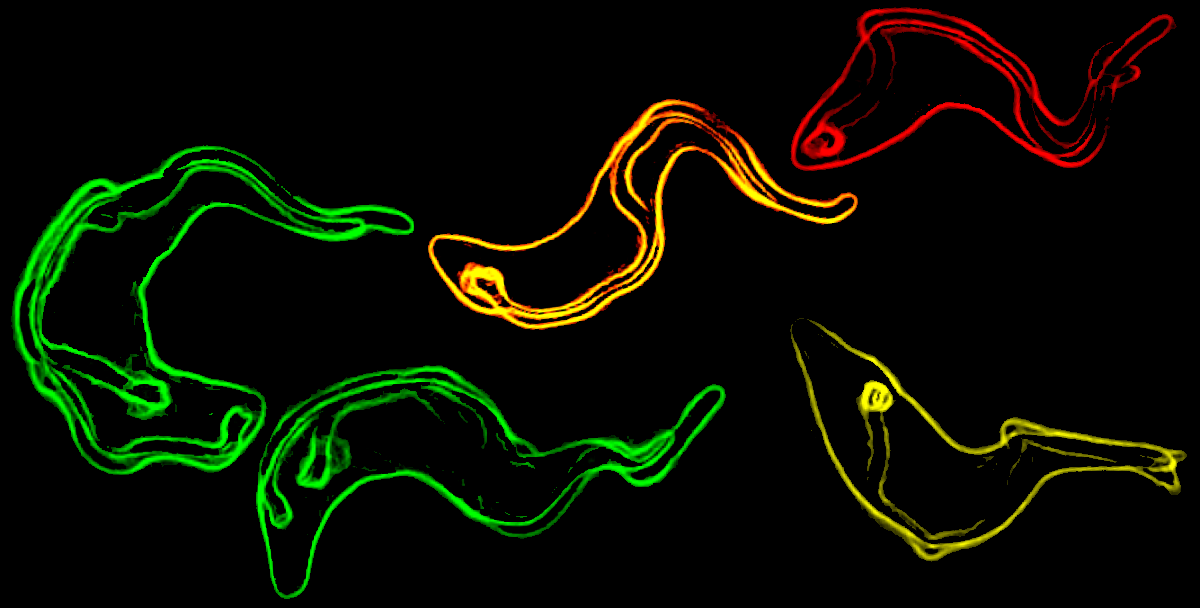Eczema prevents skin cancer
Interview with
The issue of eczema and whether it's linked to skin cancer is controversial, KCR Scientist Esther Hoste and Fiona Watt spoke to Chris Smith about what they have discovered...
Fiona - There's been a long debate about whether or not people who suffers from allergies have an altered risk of developing cancer. Looking at the figures, I would say for every study that suggests the positive correlation, there's one that shows a negative correlation, and one that shows no effect at all. But nevertheless, it is of interest because there's a very strong inviting concept that harnessing the immune system in some ways can be a useful way of treating cancer. 
Chris - Why should there be a relationship between dermatitis and skin cancer?
Fiona - In theory, if you believe that the immune system is involved positively or negatively in tumour formation, then we know in eczema that the immune system is on red alert and that's why you have scaly and itchy red skin. It's quite natural to expect that in that situation, you would have an altered response to insults that would cause cancer.
Chris - And so, hypothesis would be, if you have an immune system on red alert, that it should be more vigilant towards any cells that are trying to become cancerous and delete them, but then is not a flip side of the coin that an immune system on red alert is going to cause more inflammation. We know that sustained inflammation is in and of itself a risk factor for cancer.
Fiona - Yes, absolutely. So, when we setup the experiments, we were completely divided about what the outcome would be. We genuinely did know what to expect.
Chris - Esther, you work with Fiona on this project. How did you actually do the study to try to unpick which of those two outcomes it was going to be?
Esther - Because the human system is very difficult to study because atopic dermatitis or eczema is a disease which has a relapsing and remitting nature which we had to shift to an animal model to study the importance of the atopic phenotype on skin carcinogenesis. Because people that are suffering from atopic dermatitis are often treated with immunomodulatory drugs and that actually will clearly hamper our conclusion. So, we created a mouse model in which there are three proteins lacking that play an important role in epidermal barrier function.
Chris - Does the absence of those proteins then trigger an atopic state in your animal model?
Esther - Yes, so if you knockout those three proteins, what you get is you get an increase in certain immune types while other immune types are actually reduced. And phenotypes that we see are actually, they exhibit hallmarks of the active state of atopic dermatitis.
Chris - So, this gives you an animal where if you were to look at the skin, you would see characteristics very reminiscent of atopic dermatitis in a person.
Esther - Yes, that's right.
Chris - And so, you can be reasonably sure that you've got a faithful model there in which to then test the rates of cancer development.
Esther - Yes, I think that's one of the biggest novelties that we used for the first time. An animal model in which the epidermal barrier is clearly defective and has also an immune component which really mimics the disease.
Chris - And then what about the skin cancer side of things because animals don't develop skin cancers over their lifetime like a human does necessarily? So, how did you mimic that?
Esther - Yes, so in order to induce tumour formation in these mice, we make use of two chemical components. One is a component called DMBA that actively induces mutations in H-ras which is a very important protein in tumour formation. If you just applied DMBA agents, mice don't get tumours. But if you promote the tumour genesis with another component that is called TPA, you start to get tumours.
Chris - And so, if you then do the obvious experiment which is, you do this in mice that have the deficient skin barrier so they're mimicking atopic dermatitis, eczema, versus animals that don't have the deficient barrier so they're like a person who doesn't have eczema. What's the difference in rates of skin cancers in those two groups?
Esther - What we saw is that the mice that has atopic dermatitis, they're highly resistant to skin tumour formation. So, they develop much less tumours. There were also mice that did not develop any tumours at all while the control mice, all made tumours.
Chris - Quite striking findings there, Fiona. How do you actually account for this and what do you think the implications more broadly are then?
Fiona - I think in terms of the basic biology, the important point is the skin has a defective barrier in our model that is linked to increased cancer resistance. We believe that that is because the immune system helps to insure that cells with cancer's mutations are expelled from the skin. So, that's the key conclusion from our findings.










Comments
Add a comment